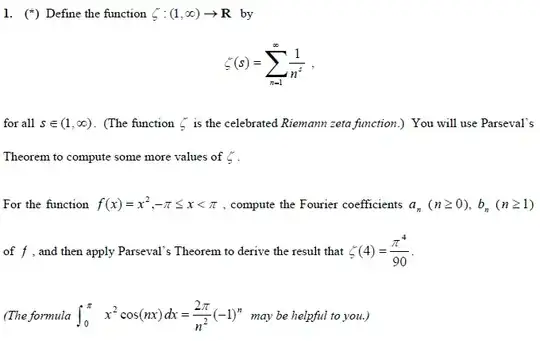I have this question:

I know Parseval's theorem is given by $2a_0^2 + \sum_1^{\infty} (a_n^2 + b_n^2) = \frac {2}{T} \int_{-T/2}^{T/2} f(x)^2 dx$, where T is the period.
$f(x)$ is even, so I know I only need the $a_0$, $a_n$ coefficients. I seem to differ from the solution by my calculation of $a_0$. I've said:
$$a_0 = \frac {4}{T} \int_0^{T/2} f(x) dx = \frac {2}{\pi} \int_0^{\pi} x^2 dx = \frac {2\pi^2}{3}$$
However, the solution has this result as $\frac {\pi^2}{3}$. Could anyone suggest where I've gone wrong? Thanks!